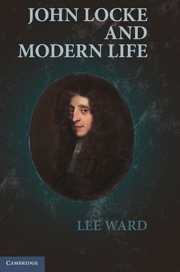4 - The Natural Rights Family
Published online by Cambridge University Press: 05 July 2011
Summary
Discerning the political significance of the family has always been a major concern in the history of political thought. At least since Plato and Lycurgus, it has been well understood that any radical change in political structures and institutions will also require dramatic alteration in society's conception of the family. However, typically pre-modern political theory viewed the family in a conservative light as an institution reflecting generational continuity and primal or subpolitical forms of attachment that point beyond themselves to their greater significance as constitutive elements of political society. For instance, in the organic conception of politics articulated by Aristotle and his followers over the centuries, political theory was charged with the task of properly defining the economic and educative role of the family in the web of natural associations that compose the polis. Relations within the family were held to be midlevel theoretical concerns, secondary to the goal of establishing the correct purpose of the family in the context of this larger, and ontologically prior, social reality.
With Locke, however, in early modernity, understanding the family's role in political theory assumed new significance and indeed acquired a palpable sense of urgency. The animating spirit of Locke's epistemology, his “democratization of mind,” proposed new principles of intelligibility to replace the traditional paradigms of knowledge. With its foundation in the basic equality of all humans as rational beings and a focus on understanding complex ideas and institutions by breaking them down into constituent parts, Locke's entire approach to political theory signaled a radical break from the past intellectual tradition.
- Type
- Chapter
- Information
- John Locke and Modern Life , pp. 134 - 170Publisher: Cambridge University PressPrint publication year: 2010



